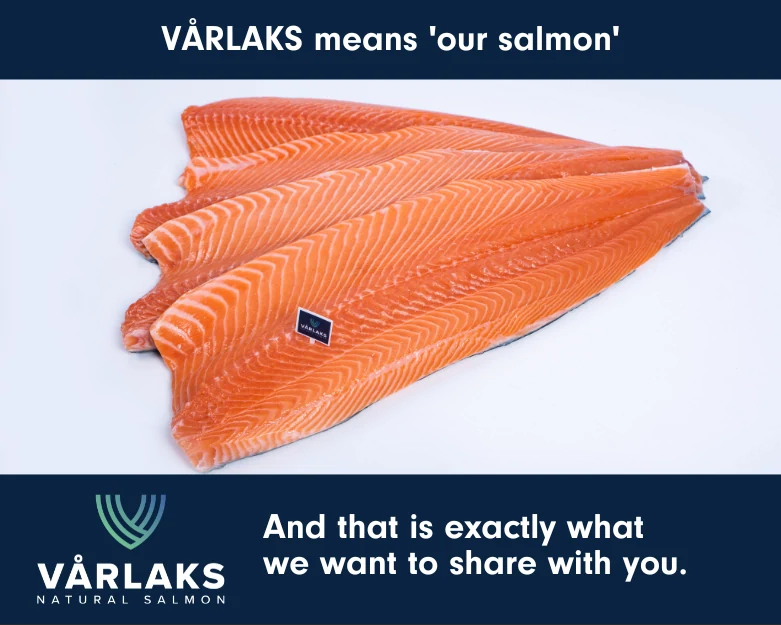The former leader of the Scottish Liberal Democrats stepped down from Scottish Rugby to tackle the salmon industry’s challenges head on.
Tavish Scott has not been long in the executive chair, but he has already jumped firmly into the role. Under Scott’s watch, a new Sustainability Charter has been written and he’s faced Scottish Parliament’s Rural Economy and Connectivity (REC) to reform industry regulations. Plus he has authored several widely covered features for the Herald. And that was just in November.
The SSPO Chief Executive, who has been described by multiple times by sources as ‘the exact right person for the job”, certainly has a vision for the UK’s biggest food export.
Productivity of the sector
In an editorial penned in the Herald last week, Scott wrote that Scotland’s salmon farming regulatory system could be overhauled. “Why on earth do we have a system where a prospective salmon farmer has to apply for four different permissions, through four different government bodies?” he asked.
“It’s about the productivity of the sector,” he told SalmonBusiness. “It’s about recognising that the production costs are higher than other salmon producing nations around the world and what can we do to make us more competitive,” he said.
“And that at the heart of what we are trying to achieve”.
Scott explained that at the hearing of the Scottish Parliament’s Rural Economy and Connectivity (REC) last week, there was some disquiet among MSPs about who has responsibility and leadership in the regulatory world.
“We agree, we are trying to help with that process. We recognise we have to pay for it, we have no problem with that at all. We are not asking for less regulation, we wanted to be there so we can make better decisions more quickly under that regulatory regime. And if we can achieve that, it’s good news for the Scottish economy, the government and certainly the sector,” he said.

“Little bit messy”
As it stands, all the different bodies operate to their own timescales, consultation mechanisms, and they are all statutory consultees to each other. That costs time and money, contributing to Scotland’s high production costs, which are 28 per-cent higher than Norway and 36 per-cent higher than Chile.
“And that’s just a little bit messy, that leads to delay. What we are asking for is a streamlined process for these to work together to the same timescale, and achieve the determination that the sector needs at the same time. The bodies get that point, and I think we can achieve some sensible change and improvement for all of us in the coming months,” he said.
On confronting criticism of the industry, Scott said that the SSPO will “front foot its environmental credentials” as set out in the new Sustainability Charter. “We are going to make our case to all those such as stakeholders, NGOs, to others who have a genuine interest in the environment of Scotland. It’s our job to not just engage with them but to discuss responsibly and recognise their concerns”.
He acknowledged that there are “detractors in every industry”.
“I worked for 20 years in politics, and every industry gets attacked to a greater or lesser extent. I think what I know having represented Shetland for 20 years in Parliament is that people who work in the industry want their member companies – the SPPO – to front foot the case for our industry,” said the SSPO boss. He also made it clear that salmon farming would be paramount to Scotland’s economic recovery from the Covid pandemic.
Remote rural communities
Well versed in politics, Scott was also an insider in the world of international sport, as Head of External Affairs for the mighty Scottish Rugby team. Not blindsided nor green to the industry, he has long been a champion for salmon farming.
“I believe in it,” he said. “Because of representing the Shetlands for two decades, I was first the local authority councilor for Shetland in 1994, and the industry was starting out. Back then it was a business run by eight individuals, with small farming operations, learning as they went along. When I left Parliament a couple of years ago, it was an industry which was hugely technologically advanced, with massive amounts of innovation in science, and now consolidated into a much smaller amount of international businesses,” he said.
Scott said that it was his first-hand experience watching how salmon farming played a part in many remote rural areas, that made him want to take on the role.
“I know that if this sector did not exist there would be very many small schools in many rural island parts of Scotland that would not have many kids in it. It’s the economic driver of so many small communities. And that’s why I wanted to be here,” he concluded.











